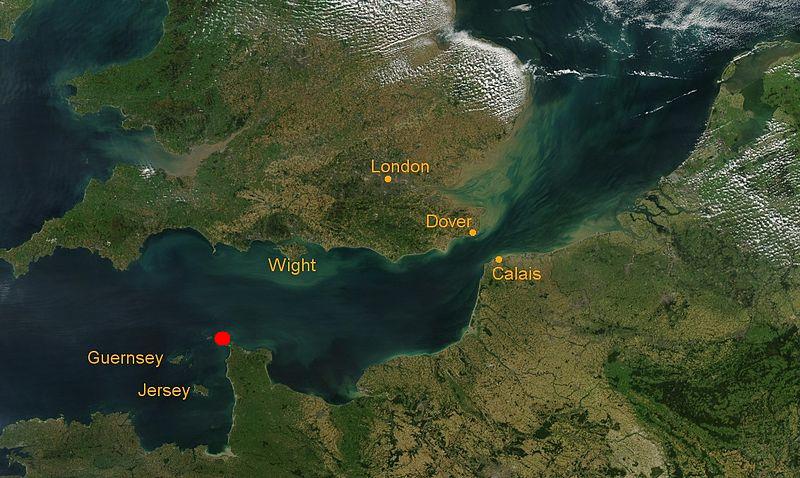Radioactive Waste 24 - Legacy Waste in the English Channel
There is a lot of nuclear waste around the world that was just dumped and forgotten. Some of it is buried and some is in bodies of water. Sometimes there is an incident such as the cancer cluster in the United States in an area when nuclear work was done during the Cold War and then shut down and forgotten. Sometimes people find old records that point to a forgotten dump. And on other occasions, someone stumbles across the old dump.
Between 1950 and 1963, over twenty eight thousand fifty-five gallon steel drums containing radioactive waste were dumped into the English Channel by the British and the Belgians. The drums contained an estimated seventeen metric tons of waste. They were dumped into an underwater valley known as Hurd’s Deep, north of the island of Alderney. The British barrels were estimated to contain as much as fifty eight trillion Becquerels of radioactivity. The European has a safe limit for drinking water of ten Becquerels per liter.
The reasoning was that, of course, the steel would rust and the containers would open. This would release the waste which would then be mixed and diluted by the seawater so that it would no longer be dangerous. The natural world’s ability to deal with toxic human waste has been overestimated many times and this case is one of them.
German journalists have located and photographed intact barrels of radioactive waste, dating from the dumping in the Fifties and early Sixties. Over fifty years have passed since these barrels were dumped and the predicted rusting away has not occurred. The German journalists believe that there may be many more intact barrels in Hurd’s Deep. Environmental activists in Germany’s Green Party demands that the barrels be removed from the channel and disposed of properly. The German government has responded to past complaints about ocean dumping by stating that their monitoring of the Channel has indicated no significant radioactivity over the dumping area.
Ocean dumping of nuclear wastes has been banned by international treaty for twenty years. The record of the creation of safe permanent underground repositories for nuclear waste has been rather poor. The United States estimates that it will be at least 2048 before there is a permanent U.S. repository for nuclear waste. In the meantime the waste is piling up in the fleet of U.S. reactors. Now we find that some older attempts to dump radioactive waste in a safe way have failed. My fear is that more and more areas of land and water will become radioactive contamination zones, unsafe for human activities. These zone will not be cleaned up because there will be no government or private funds available for such work.
English Channel – red dot is area when barrels were found:
